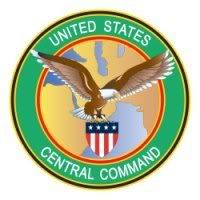Assad, Ahmadinejad vow to form alliance against U.S., Israel
Iranian President Mahmoud Adhmadinejad and Syrian President Bashar Assad on Saturday vowed to form an alliance against what they called U.S. and Israeli conspiracies against the Islamic world.
Iran's ISNA news agency quoted Ahmadinejad as saying that the Islamic world in general and Iran and Syria in particular should maintain their vigilance and neutralize conspiracies aimed at sowing discord among Muslims.
Ahmadinejad said that what the U.S. really aims for under the pretext of development in the region "is just another effort to strengthen its own status and that of the Zionists."
The Iranian president also praised the agreement by rival Palestinian factions Hamas and Fatah to form a unity government.
"Dispute among Muslim factions has always been harmful for regional nations and useful for Islam's enemies," he said.
ISNA quoted Assad as saying that expansion of Tehran-Damascus ties would help resolve the problems of the Islamic world. He accused the U.S. of trying to attract public opinion within the Islamic world by undermining Iran-Syria relations.
"America's policies have failed in the region ... By creating divisions among Muslim nations, Washington wants to pursue its aims," IRNA quoted Assad as saying during his meeting with Ahmadinejad, who urged "Muslim countries to preserve unity."
The Syrian leader said Muslims worldwide should be informed about "the evil aims by the U.S. and Zionists" which he said were sowing discord among Muslims.
Assad arrived earlier Saturday in Tehran for a two-day visit to discuss developments in the Middle East and was scheduled to also meet Iran's Supreme Leader Ayatollah Ali Khamenei, former president Akbar Hashemi-Rafsanjani and chief nuclear negotiator Ali Larijani.
On the agenda would be Iraq, Lebanon and cooperation with the
Palestinians. Assad was in Tehran in August 2005 immediately after
the start of Ahmadinejad's presidential term.
Ahmadinejad said earlier Saturday that Lebanon and Hezbollah have his complete support in their struggle against Israel and the United States.
"Iran and Lebanon are two parts of the same body, and only through cooperation between our two nations will it be possible to foil the conspiracies of the enemy," Ahmadinejad said.
"Thanks to Hezbollah, the Lebanese people have become a symbol of courage, faith and respect for all nations, and all this through the power of resistance," Ahmadinejad added.
On Friday, Hezbollah leader Hassan Nasrallah said that his organization is entitled to secretly transfer arms in order to fight Israel, and that he will not forgive the Lebanese Army for seizing last week an arms-laden truck that belonged to Hezbollah.
Nasrallah said "we have plenty of weapons ... and we have the right to transport our arms to combat Israel."
Nasrallah said the arms transfers are carried out in secret in order "to hide them from the Israeli enemy."
The Hezbollah chief added that his group has no intention of disarming, and intends to maintain its forces in southern Lebanon. "The resistance will always stand by the Lebanese Army in southern Lebanon, with our weapons, men and blood... to defend Lebanon," he said.
Hezbollah is "ready to give the army all the arms it needs," but will not forgive anyone who confiscates even a single bullet, Nasrallah added.
Nasrallah was speaking at a Beirut rally marking the anniversary of the assassination of his predecessor, Sheik Abbas Musawi, who was killed in 1992 in an Israeli strike.
Last week, the Lebanese Army confiscated a truck that was full of Hezbollah weapons.
Lebanese Defense Minister Elias Murr said during a televised interview that the arms shipment was comprised of rockets, but staunchly denied allegations that the shipment came from Syria, saying it originated from within Lebanese territory.
The Shi'ite organization announced that the truck belongs to it, and demanded that the Lebanese Army release it immediately.
The incident heightened tensions between Lebanon's government and Hezbollah, which has called for its overthrow.
Nasrallah, vowed on Friday to continue the opposition campaign led by his militant group to force Prime Minister Fuad Saniora to share power or step down, saying he was confident of eventual triumph, claiming the militants had the resources for it.
"No one should imagine that the opposition's coffers have emptied," he said. "If the (demands) are not met, the opposition will continue its actions by means which it finds appropriate."
However, Nasrallah insisted his Sh'ite Muslim followers would not incite a conflict that could degenerate into a civil war. Saniora is backed by the country's Sunnis.
"Civil war is a red line," Nasrallah said, an expression he also used last month after scuffles between pro- and anti-government supporters turned into Shi'ite-Sunni sectarian clashes that killed eight people.


















